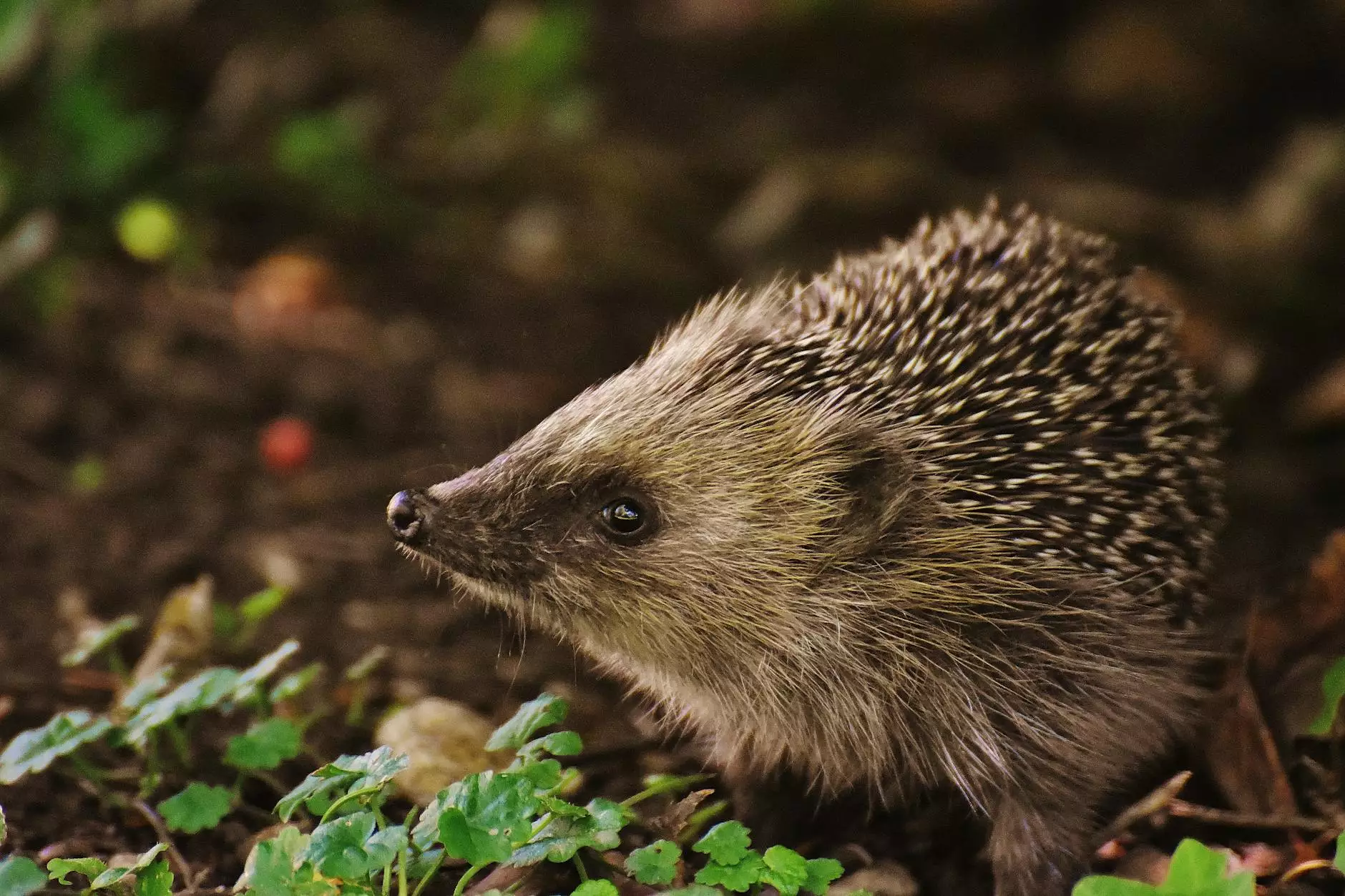The Five Big Game Animals in Africa: A Majestic Journey

African wildlife is renowned across the globe, captivating adventurers, nature enthusiasts, and photographers alike. Among the countless species that inhabit the vast landscapes of the continent, the five big game animals—the lion, leopard, rhinoceros, elephant, and Cape buffalo—stand out as symbols of strength, grace, and beauty. These magnificent creatures not only embody the essence of Africa’s natural heritage but also play crucial roles in the ecosystem. If you're planning an adventure with a focus on these remarkable animals, join us at ecologicaladventure.com to discover more!
1. The Lion: King of the Savanna
The lion, often referred to as the king of the jungle, is a majestic apex predator that dominates the African savanna. Known for their strength, social structure, and hunting prowess, lions reside in prides that consist of related females, their cubs, and a few dominant males. The dynamic of these prides is fascinating; females usually do the majority of the hunting, while males are responsible for protecting the pride’s territory.
- Habitat: Lions typically inhabit grasslands, savannas, and open woodlands, where they can hunt and find cover.
- Diet: They are carnivorous, primarily hunting large herbivores such as wildebeest, zebra, and buffalo.
- Conservation Status: Lions are currently classified as vulnerable, with their populations declining due to habitat loss and poaching.
Witnessing lions in their natural habitat is an unforgettable experience. There’s nothing quite like watching these incredible animals in action during a game drive. At ecologicaladventure.com, we offer exclusive tours that provide opportunities to see lions up close and learn about their crucial role in the ecosystem.
2. The Leopard: The Stealthy Hunter
The leopard is renowned for its solitary nature and stealthy hunting abilities. With a uniquely patterned coat that provides excellent camouflage in the trees and grasslands, leopards are master hunters, often using their climbing skills to hunt and stash their meals high up in branches. This not only protects their food from scavengers but also highlights their incredible adaptability to various environments.
- Habitat: Leopards thrive in a range of habitats, from savannas to mountains and rainforests.
- Diet: They are opportunistic feeders, preying on a variety of animals, including small antelope, monkeys, and birds.
- Conservation Status: Leopards are listed as vulnerable, primarily due to habitat fragmentation and poaching.
To observe a leopard in the wild is a rare and thrilling experience. They are often elusive and difficult to spot, which adds an air of excitement to your African adventure. Join our custom safari tours at ecologicaladventure.com to increase your chances of encountering these magnificent big game animals.
3. The Rhinoceros: The Gentle Giant
The rhinoceros, often known as rhinoceri, are among the largest land mammals and come in two species: the black rhinoceros and the white rhinoceros. Both species are iconic to African wildlife but face severe threats from poaching for their horns the demand for which is driven mainly by traditional medicine in some cultures.
- Habitat: Rhinos prefer savannas and grasslands, but they are also found in some forests.
- Diet: Rhinos are herbivores, primarily feeding on grass, leaves, and shrubs.
- Conservation Status: Both species are critically endangered, with extensive conservation efforts aimed at their protection.
Supporting rhino conservation efforts is essential to their survival. Many organizations dedicate resources to protect these gentle giants from poachers. When you visit Africa, you can contribute by choosing eco-friendly tours, such as those offered at ecologicaladventure.com, where a portion of your tour fee helps fund rhino conservation.
4. The African Elephant: The Largest Land Mammal
The African elephant is the largest land mammal on Earth and represents an enduring symbol of strength and wisdom. Known for their intelligence, social behavior, and emotional depth, these majestic creatures live in familial herds led by a matriarch. Elephants are essential for maintaining the health of their environment; they help shape their ecosystem by breaking trees and creating pathways for other animals.
- Habitat: African elephants inhabit a variety of ecosystems, including savannahs, forests, and deserts.
- Diet: They are herbivores and consume vast quantities of grass, leaves, and fruit daily.
- Conservation Status: African elephants are classified as vulnerable, primarily due to poaching for ivory and habitat loss.
Seeing elephants in the wild is a profound experience. Their complex social structures and playful nature are captivating. By joining our eco-conscious tours at ecologicaladventure.com, you can witness these incredible animals while contributing to their conservation.
5. The Cape Buffalo: The Strong and Resilient
The Cape buffalo, or African buffalo, is known for its formidable presence and impressive strength. They are incredibly adaptable animals found in various habitats across Africa, from grasslands to swamps. Cape buffalo are known for their unpredictable nature and formidable defense strategies, often forming large herds to protect themselves from predators, including lions and hyenas.
- Habitat: They thrive in open and wooded grasslands and are often found near water sources.
- Diet: As herbivores, they primarily graze on grasses and browse on available foliage.
- Conservation Status: Although they are not currently endangered, habitat loss and hunting pose threats to their populations.
Encounters with Cape buffalo can be thrilling due to their unpredictable behavior and social dynamics. Their strength and herding behavior are fascinating aspects of their biology. Experience the power of the Cape buffalo by embarking on a guided safari with ecologicaladventure.com, where you can observe them in their natural habitat.
Conclusion: Protecting Africa's Big Game
Patiently observing the five big game animals in Africa provides invaluable insights into nature's interconnectedness and the importance of wildlife conservation. Each species plays a critical role in maintaining balance within their ecosystems, and it is our responsibility to protect them for future generations.
Adventurers seeking to immerse themselves in the beauty of these majestic creatures should consider eco-friendly travel options. At ecologicaladventure.com, we are committed to promoting sustainable tourism that respects the natural environment and supports local communities. Together, we can ensure that the majestic five big game animals continue to roam the African landscapes for years to come.
Pack your bags and prepare for an adventure of a lifetime—witness the five big game animals in Africa and create memories that will last forever!



